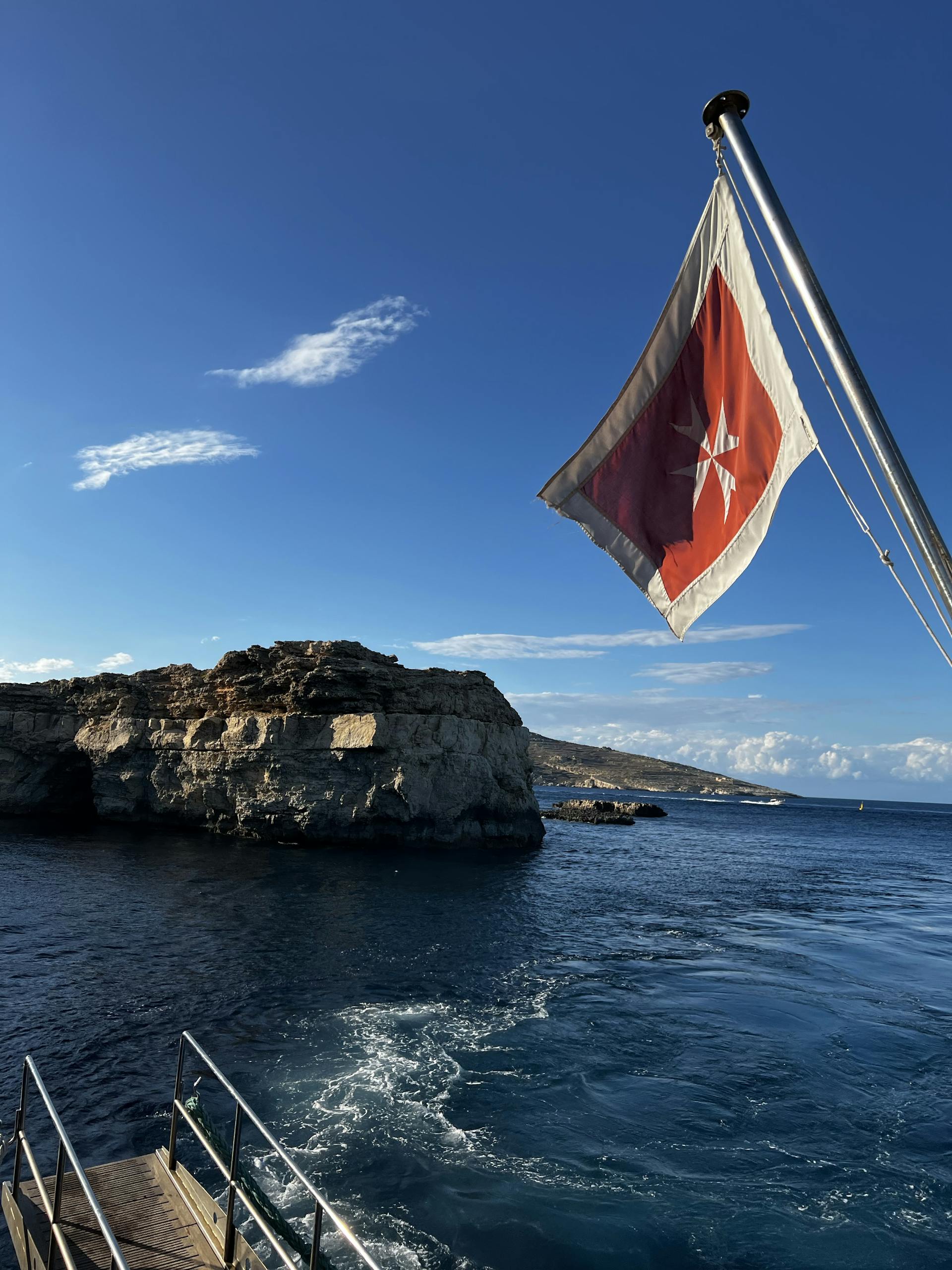What Every Nigerian Should Know About Malta Immigration
While most Nigerians are focused on the traditional “Japa” destinations like Canada, UK, and Australia, a small Mediterranean island is quietly revolutionizing immigration opportunities for West Africans. Malta – the English-speaking heart of Europe – has just opened its January 2026 intake, and the numbers are nothing short of remarkable.
The reality? While others are struggling with sky-high costs and brutal visa rejection rates in popular destinations, smart Nigerians are discovering Malta’s immigration advantages that most people don’t even know exist.
Why Malta Immigration is Becoming Nigeria’s Best-Kept Secret
Malta isn’t just another European country – it’s a strategic immigration gateway that combines affordability, accessibility, and genuine pathways to EU residency. Here’s what makes Malta immigration particularly attractive for Nigerian families in 2026.
The Malta Advantage: English + Europe + Affordability
Unlike other EU nations where language barriers create massive obstacles, Malta operates in English. This means Nigerian students and professionals can focus on building their careers instead of learning German, French, or Dutch.
But here’s the game-changer: Malta immigration costs are a fraction of traditional destinations, while offering the same EU benefits.

1. Malta Immigration Costs That Actually Make Sense
The brutal truth about popular destinations:
- UK universities: €15,000+ per year
- Australian education: €20,000+ per year
- Canadian programs: CAD $15,000-$30,000 per year
Malta immigration reality:
- Tuition: €6,000–€9,500 per year
- Scholarships available up to 50%
- Flexible payment plans (no massive upfront payments)
- Total education cost: Often 60-70% less than traditional destinations
For families considering Malta immigration, this affordability extends beyond education to create genuine opportunities for financial stability while building European residency.
2. Malta Immigration Visa Success Rates (The Numbers Don’t Lie)
While Nigerians face devastating rejection rates in other countries, Malta immigration statistics tell a different story:
Malta Type D Student Visa Approval Rate: 70-80% (when documents are complete)
Processing Timeline:
- Application to decision: 8-12 weeks
- January 2026 intake deadline: October 24, 2025
- Classes begin: January 26, 2026
Critical Success Factors for Malta Immigration:
- Complete financial documentation
- Clear academic progression
- Genuine student intention demonstrated
- Professional application preparation
The key difference? Malta immigration officers evaluate applications based on merit and genuine intent, not arbitrary quotas that plague other destinations.
3. Malta Immigration Work Rights and Career Pathways
Student Work Rights:
- 20 hours per week after 3 months of study
- Hourly wages: €5-€10 (competitive for European standards)
- On-campus and off-campus opportunities available
Post-Graduation Pathway:
- 6-month job search period in Malta or anywhere in the EU
- EU Blue Card eligibility for skilled professionals
- Clear pathway to long-term residency
- Family reunification options available
Career Opportunities: Malta’s strategic location makes it a hub for:
- Financial services
- Online gaming and tech
- Tourism and hospitality
- Maritime and logistics
- Healthcare services
4. High-Demand Programs for Malta Immigration Success
MBA in Logistics & Supply Chain Management
Malta’s position as a Mediterranean trade hub creates exceptional career opportunities. Nigerian professionals with logistics experience find immediate relevance and job prospects.
MSc in Health & Social Care Management
Europe’s aging population creates massive demand for healthcare management professionals. This program directly addresses EU workforce needs.
Bachelor’s in Marketing
Malta’s booming digital economy and tourism sector offer immediate internship and job opportunities for marketing graduates.
Master’s in Information Technology
Growing tech sector with English-speaking environment makes Malta ideal for Nigerian IT professionals seeking European opportunities.
Malta immigration offers European living standards at costs comparable to major Nigerian cities, but with European wages and opportunities.

The Malta Immigration Strategy: Why Timing Matters
January 2026 Intake Timeline:
- Now – October 24, 2025: Application period
- November-December 2025: Visa processing
- January 26, 2026: Classes begin
Strategic Advantages of January Intake:
- Less competition than September intakes
- Better accommodation availability
- Immediate start to European residency timeline
- Summer internship opportunities in first year
How to Maximize Your Malta Immigration Success
Document Preparation Checklist:
- Academic transcripts (WES evaluation recommended)
- Financial proof (€10,000+ recommended)
- English proficiency scores (IELTS/TOEFL)
- Statement of purpose (Malta-specific)
- Health insurance coverage
- Accommodation proof
- Police clearance certificate
Application Strategy:
- Apply early (don’t wait for deadline)
- Show genuine intent for Malta specifically
- Demonstrate financial stability beyond minimum requirements
- Connect academics to career goals clearly
- Prepare for potential interview (though rare)
The Hidden Malta Immigration Advantage: EU Mobility
What most people don’t realize about Malta immigration is the long-term strategic value. Malta citizenship means EU citizenship, which provides:
- 27-country work authorization
- Healthcare access across Europe
- Education benefits throughout EU
- Retirement options in any EU nation
- Investment opportunities across European markets
Critical Dates for Malta Immigration January 2026
Action Timeline:
- September 2025: Begin application preparation
- October 1-24, 2025: Submit complete application
- November-December 2025: Visa processing period
- January 2026: Arrival and orientation
- January 26, 2026: Classes commence
Malta Immigration Myths vs. Reality
Myth: “Malta is too small to offer real opportunities” Reality: Malta’s EU membership provides access to 450 million people and 27 countries for work and business.
Myth: “Malta degrees aren’t recognized internationally”
Reality: Malta follows Bologna Process standards. Degrees are recognized throughout EU and internationally.
Myth: “Language barrier will be an issue” Reality: Malta is officially English-speaking. No language learning required.
Why Malta Immigration Makes Sense for Nigerian Families
For Parents: Affordable path to secure your children’s European future For Professionals: English-speaking environment with immediate relevance For Students: Quality education without crippling debt For Families: Clear pathway to bring everyone together in Europe
The Malta Immigration Decision
The January 2026 Malta immigration opportunity represents something rare in today’s immigration landscape: a genuine pathway that combines affordability, accessibility, and long-term value.
The choice is simple:
- Continue competing in oversaturated traditional destinations
- Or position yourself strategically in Malta for European success
Malta immigration isn’t for everyone. It’s for Nigerians who:
- Value strategic thinking over following crowds
- Prioritize long-term European access over short-term prestige
- Want affordable quality education with clear career pathways
- Understand that sometimes the best opportunities are hidden in plain sight
Ready to Explore Malta Immigration?
Don’t navigate Malta immigration alone! Join WakaWaka Doctor’s next JAPA Webinar on September 14, 2025 where you’ll get step-by-step Malta application guidance, exclusive scholarship opportunities, and live Q&A to answer all your questions. With the October 24, 2025, Malta deadline approaching fast, this webinar ensures you don’t make costly mistakes that could delay your European dreams. 👉 Register FREE for September 14th Webinar Here – Limited spots available!
Your European future starts with one decision: Will you explore Malta immigration while others are still struggling with traditional destinations?






